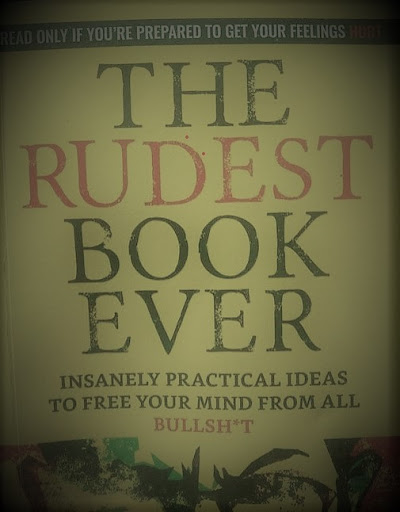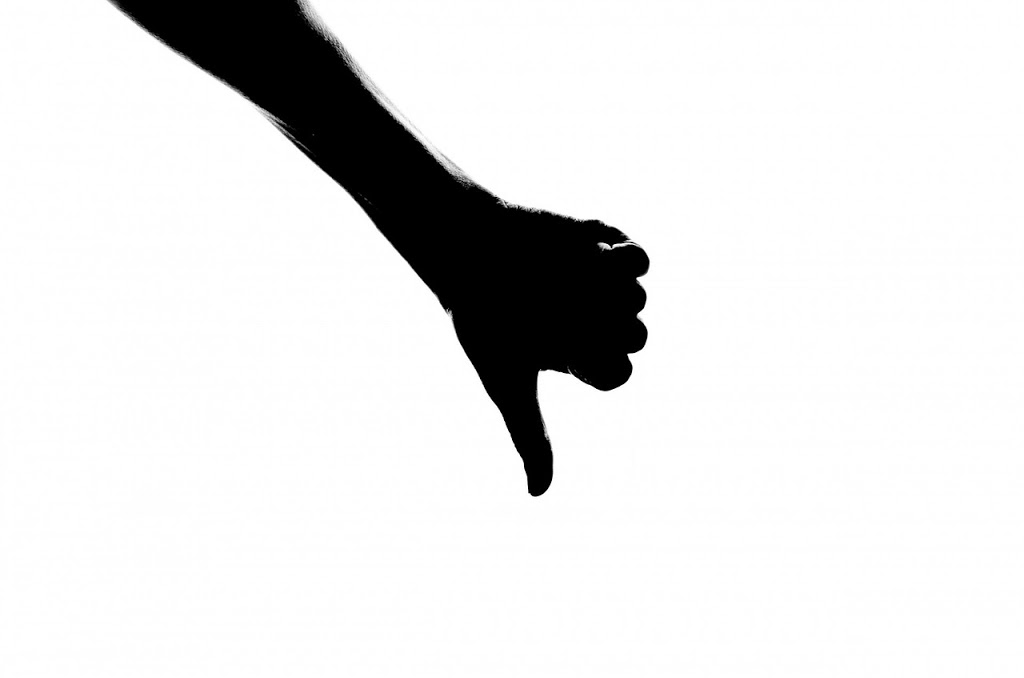
Shwetabh Gangwar is one of those rare YouTubers whom I gladly found. His “The Rudest Book Ever” is a simple yet intellectually challenging book that might even make you severely uncomfortable. In this article, we are going to talk about “The Rudest Book Ever”.
Do you love to think? Do you love to share different perspectives with people? Are you fed up with those so-called “Motivational” speakers, who talk all rainbow and unicorn but when it comes to applying, those talk sucks? Then Shwetabh Gangwar’s “The Rudest Book Ever” is for you.
In late 2018, while mindlessly surfacing the web, I came to know about Shwetabh Gangwar. An Indian YouTuber with a rude mouth, I felt very uncomfortable watching his videos first. But then, I came to realize that everything this guy is saying is true. Pure, no bullshit truth.
And I was hooked.
He didn’t (and still don’t) care about what other people thought about his perspectives, he refused to take media/public narratives without any logic, and whatever came out from his mouth, was rude and aggressive but true!
So, when his first book, The Rudest Book Ever, got published, I bought it immediately. And boy! I wasn’t disappointed. So, in this post, I’ll share three perspectives that I got from “The Rudest Book Ever”.

What “The Rudest Book Ever” is about
This book is all about perspective. Shwetabh has shared his philosophies in this book. So, if you are someone who likes to read only scientific self-help books, then I would highly discourage you to read this one. Not because, the book is bad or illogical, it’s far from it. But because you might not find academically certified facts from this book. But if you are someone who loves discussing perspectives in general, then you should give this book a read.
Three Ideas from The Rudest Book Ever
Rejections are normal because people are weird
Remember the first time when you get rejected? Remember the feelings? Yes, it sucked, and to be honest, it still sucks. We don’t want to get rejected by anyone. We want everyone to like us. (at least most of us) But because reality doesn’t give a flying shit about what we want, we get rejections regularly.
Shwetabh says, instead of taking rejection very personally, why not we take it normally? And I know, I know, it sounds simple when in reality, it’s hard to see rejection in that way. My own first reaction reading this chapter was like:
“Oh, yes! You are absolutely right! What’s next? Grass is greener?”
But Shwetabh acknowledges that it’s not easy to take rejection normally. One of the reasons as he suggested which I can relate is that most of us get rejections in our teenage period. And in that sensitive time, those rejections rip our hearts out(or at least we take it that way). That pain, that ignorance teaches our brain to not to take rejections lightly. So, later in life, it becomes hard to take rejections normally.
Shwetabh also argues that we deal with rejections in one of the following ways:
- I think I am a loser
- I’ll show the world what I am
- I am going to cry and whine about the world being unfair
All of them are horrible ways to deal with rejections. Because when it comes to rejection, it’s not about you it’s about the other party. They are rejecting you because they have a problem with you, a problem which you might never know nor understand. So, it’s not like something is wrong with you. You also can’t predict the reasons all the time, because most of the time it might not make any logical sense. People are weird to fully understand and you can’t impress all of them.

So, thinking about being a loser is not a good choice, as you are just killing your own self-respect. Secondly, because people are weird and it’s not your fault that you get rejected, then you don’t have to prove anything to anyone. Lastly about the crying part, well life is unfair whatever you do. So, why bother?
Seeking approval kills individuality
You have an inner “you”. That “you” is an individual. That individual wants to do something, has some dreams of their own, and wants to live life on their terms. But you kill that individual by your own hand.
How? By seeking approval from the outer world
You see, when we are young, we don’t know anything about our own skills, abilities, or potential. So we rely on other people, specially authoritative figures to test us, mark us, and tell us about ourselves. Because we get used to getting reports about ourselves from them, we subconsciously start seeking approval from them. So, if we do something self-satisfying, but it gets rejected by them, we stop doing that. This slowly kills our individuality. Gradually we become so much dependent on others that we can’t decide what to do to get genuine self-satisfaction.
So, Shwetabh argues that if you want to seek approval, then seek it within yourself. Give yourself a chance to explore and see if any particular thing brings you self-satisfaction. If it does, then screw them if they tell you not to do it. Do that for your own self-satisfaction. Do that for yourself.
One important point to be noted is that Shwetabh discusses the differences between satisfaction and happiness, he thinks that it’s not happiness (which is just an emotion) that we should focus on, but we should focus on long-term satisfaction. So, if you think “Screw all, I am doing cocaine because it gives me self-satisfaction”, then good luck in jail!
The point is, self-satisfaction is constructive, long-term, and not destructive to you or anyone else.

What to think =/= How to think
This chapter about “Learning How To Think” was a big “oh, damm! I never thought that way” thing to me. We believe that we know how to think and how to solve our problems. But still, when we hear words like “Out of the box thinking”, and “Creative Thinking”, we become emotionally aroused. These abstract topics seem like a mystery, one in a million things to us because we don’t have this kind of thinking capability.
On the other hand, when we face a problem, we seek help from others, especially from those who claim to have “out of the box/ creative thinking”. Now seeking help is not bad. But if we are capable of thinking on our own, then why are we becoming so dependent on others? Why the concept of out-of-the-box thinking is a mystery to us? These abstract topics seem like a mystery, one in a million things to us because we don’t have this kind of thinking capability. On the other hand, when we face a problem, we seek help from others, especially from those who claim to have “out of the box/ creative thinking”. We become dependent followers of them. So, the question is, if we know how to think then why do we seek external help? Shwetabh gives a very simple answer to this question:
We know what to think but not how to think
You see, from our childhoods, our parents, society and the media is telling us what to think. We are told what narratives we should believe and what we shouldn’t. Our own thinking capabilities don’t get developed this way.
So, when we face a problem, we can’t use our own thinking as it’s not trained enough. For that, we have to use what has been fed to us. Another part of this matter is that, when we try to solve a problem, we try to gather narratives related to that problem. We focus more on narratives rather than facts, as narratives are premade decisions whereas facts will help us make our own decisions. We think that by doing this only, we are solving the problem. But that is not how problem-solving works.
To solve a problem with your own thinking, you first need to be completely clueless about the problem, then you need to try different methods completely by yourself to solve the problem. Once solved, try other ways to solve the same problems. That’s how your thinking will grow and your problem-solving skill will get better.
My opinion on “The Rudest Book Ever”
I personally enjoyed this book very much. It’s easy to read, small in volume, and easy to understand also. I see this book as a source of re-evaluating our intellectual identities. At face value, this book might not bring scientific facts, or research to the table, but it surely makes us think about our premade assumptions. This book also discusses the philosophy of individuality, which I think is very much needed for our world right now.
So, if you like to get something simple but intellectually stimulating, give this book a read.

One reply on “The Rudest Book Ever: The “Rude” Book about Philosophy”
Good day! I just want to give you a big thumbs up for your excellent information you have here on this post. I am coming back to your web site for more soon.